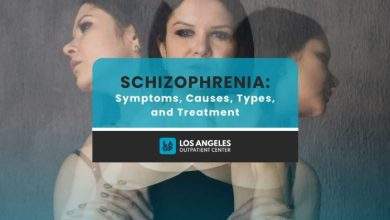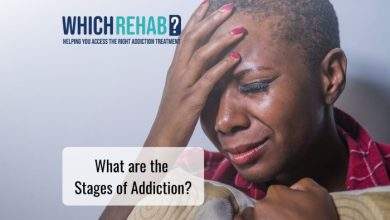
Teenage years are full of ups, downs, and emotional twists. It’s a time when young people are figuring out who they are, where they belong, and how to manage life’s growing responsibilities. Add academic pressure, social media stress, body image concerns, and peer conflict—and it’s no surprise that many teens start to feel overwhelmed. This is where Dialectical Behavior Therapy (DBT) can truly make a difference.
DBT is more than just therapy. It’s a powerful toolkit that helps teens develop real-world skills to cope, grow, and thrive—even when life feels too much. Let’s explore why Dialectical Behavior Therapy is so effective in supporting teen mental health.
What Is Dialectical Behavior Therapy?
Dialectical Behavior Therapy is a type of cognitive-behavioral therapy (CBT) created by Dr. Marsha Linehan. While it was originally designed for adults with borderline personality disorder, DBT has shown great success in helping teens who experience emotional dysregulation, anxiety, depression, suicidal thoughts, self-harm, eating disorders, and more.
What makes DBT special is its unique blend of acceptance and change. It helps teens accept their emotions without judgment while also teaching them practical skills to manage those emotions better.
Primary elements of DBT include:
- Individual therapy sessions
- Group skills training
- Phone coaching (in some programs)
- Therapist consultation teams
These elements work together to create a structured yet compassionate space where teens can grow emotionally and socially.
How Dialectical Behavior Therapy Helps Teens Emotionally
Learning to Regulate Emotions
One of the most common challenges teens face is feeling like emotions are out of control. Mood swings, intense reactions, or shutting down emotionally can all be signs of poor emotional regulation.
Pediatric Behavior Therapy teaches teens how to understand better and regulate their emotions. This means:
- Naming and identifying what they’re feeling
- Understanding why they’re feeling that way
- Choosing how to respond instead of reacting impulsively
This skill alone can improve everyday life—whether it’s dealing with a fight with a friend, school stress, or family disagreements.
Mindfulness: A Powerful Coping Tool
Mindfulness is one of the four core modules in DBT, and it’s a game-changer. It helps teens stay present and grounded instead of being swept away by anxious thoughts or regrets.
Teens often live in high-stress environments, whether it’s due to social pressures or academic demands. Mindfulness teaches them to:
- Focus on the present moment
- Let go of judgmental thoughts
- Accept experiences as they are
This skill can lower anxiety, improve concentration, and help with overall emotional resilience.
Handling Crisis Situations with Distress Tolerance
When teens go through intense emotional pain, they may not know how to cope in healthy ways. This can lead to harmful behaviours like self-harm, substance abuse, or emotional outbursts.
That’s why Dialectical Behavior Therapy teaches distress tolerance skills. These are short-term coping tools that help teens survive overwhelming situations without making things worse.
Examples include:
- Deep breathing
- Ice-holding technique
- Distraction methods
- Self-soothing exercises
These skills are especially helpful during emotional crises and build confidence in a teen’s ability to ride out the storm safely.
Strengthening Relationships Through Interpersonal Effectiveness
Relationships are everything in the teen years—from friendships to dating to family dynamics. But these connections can also cause stress, conflict, and misunderstandings.
In DBT, teens learn interpersonal effectiveness skills, which help them:
- Communicate their needs clearly
- Set and maintain healthy boundaries
- Say “no” without guilt
- Handle rejection or criticism with grace
These tools are essential for maintaining positive relationships and reducing feelings of isolation or frustration.
Why Dialectical Behavior Therapy Works So Well for Teens
What makes Dialectical Behavior Therapy stand out is that it doesn’t just help teens “talk about their feelings.” It teaches them how to act on those feelings in a more balanced and healthy way.
Here’s why teens respond so well to DBT:It’s structured and clear: Teens thrive when they know what to expect. DBT offers a step-by-step plan with weekly sessions and specific skills.
- It’s action-based: Teens don’t just vent—they practice real tools they can use immediately.
- It meets them where they are: DBT accepts that teens have strong emotions and doesn’t shame them. Instead, it validates their experience and helps them manage it.
- It supports change at their pace: Progress is made little by little, which is less overwhelming and more encouraging.
Research-Backed Results of DBT in Teen Therapy
Numerous studies confirm that Dialectical Behavior Therapy is highly effective for teens. According to the National Institute of Mental Health, DBT has significantly reduced:
- Suicidal thoughts
- Self-harm behaviour
- Depression and anxiety
- Hospitalization rates
Many adolescent-focused DBT programs include school-based or outpatient treatment plans, allowing teens to access therapy without needing full-time residential care. Clinics and mental health centers across the U.S. are now offering specialized DBT for teens due to its success rate.
When to Consider Dialectical Behavior Therapy for a Teen
DBT may be helpful if your teen is experiencing:
- Emotional outbursts or mood swings
- Chronic anxiety or depression
- Self-harming behaviours or suicidal ideation
- Relationship conflicts
- Difficulty setting boundaries or expressing needs
- Risky or impulsive behaviour
If you’re unsure, it’s worth reaching out to a licensed mental health professional trained in DBT. Early intervention can make a big difference in a teen’s long-term wellbeing.
Bringing DBT Skills Home
Even if a teen isn’t in therapy, families can bring the core principles of Dialectical Behavior Therapy into daily life:
- Encourage mindful moments, like mindful eating or breathing exercises.
- Use “Wise Mind” discussions—balancing emotion and logic.
- Validate their feelings before offering advice.
- Talk about options for problem-solving without judgment.
Books, online courses, and teen DBT workbooks are also great tools to explore DBT at home. Here’s a helpful resource from Behavioral Tech where you can learn more about DBT programs and training.
Final Thoughts
Dialectical Behavior Therapy offers hope and healing for teens who feel overwhelmed by their emotions, relationships, or daily stress. With practical tools, a supportive framework, and a focus on both acceptance and growth, DBT empowers teens to take charge of their mental health—one skill at a time.
If you’re a parent, caregiver, or teen looking for a way to feel more balanced, DBT might be the step forward you’ve been looking for. It’s not about being perfect. It’s about learning how to handle life, even when it gets messy.




